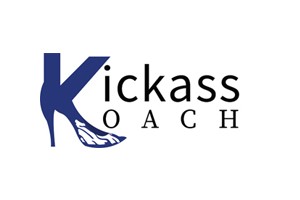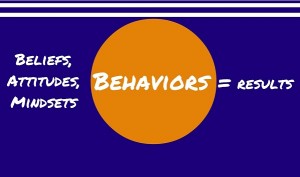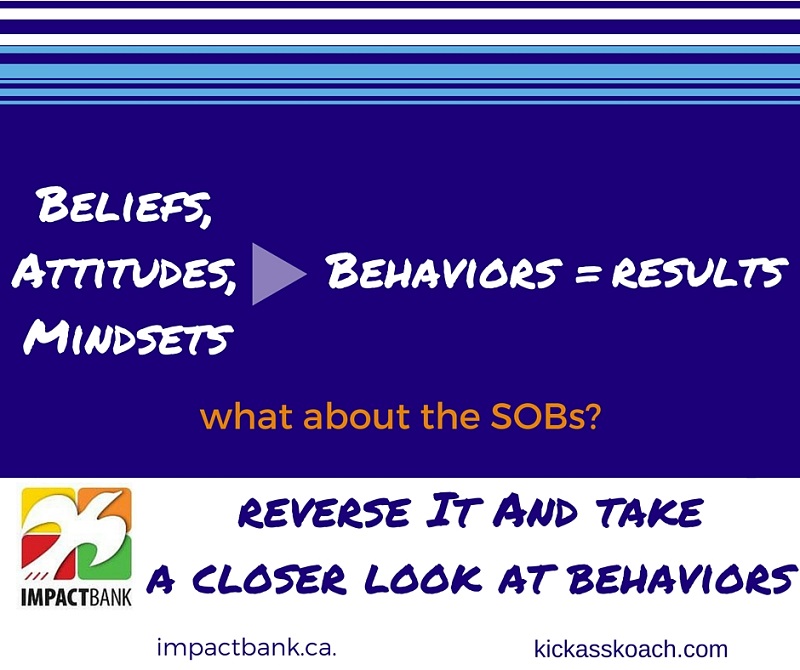Listen to this and other episodes
ImpactBank’s The Kickass Koach podcast supports emerging senior leaders who want to quickly master the art and practice of leadership. When you were promoted into a senior position, if you’re like most leaders you were immediately excited b y the opportunity. You also soon realized the immense challenge ahead of you.
y the opportunity. You also soon realized the immense challenge ahead of you.
You quickly had feelings of being lost, overwhelmed and very alone. You need to find your leadership presence and voice. We help with that. We specialize in helping leaders during their first two years with a special emphasis on the first 90-180 days.
Week 35: Digging into Diversity
How do you define diversity? Could you expand your definition and expand your impact?
What if it’s the leverage that will help you unlock the performance you seek from your team.
Want to experiment? It may be that leadership is all about experimentation….give it a try.
 Leaders need to produce results. You may be needing to improve regulatory compliance or you may be needing to increase the efficiency of your client service levels or improve the critical thinking of your team. Regardless, if you haven’t noticed yet, you’ll soon see that simply focusing on the results won’t move the needle.
Leaders need to produce results. You may be needing to improve regulatory compliance or you may be needing to increase the efficiency of your client service levels or improve the critical thinking of your team. Regardless, if you haven’t noticed yet, you’ll soon see that simply focusing on the results won’t move the needle.
YOU NEED TO MOVE THE NEEDLE.
SO, you have a choice:
- Focus on the behaviors – short term improvement
- Focus on the mindset, attitudes and beliefs to reduce obstacles and open up opportunities for improvement – long term sustainable improvement
We have discovered the best place to start for emerging leaders is with behaviors provided you don’t settle for only short term wins.
Changing Behavior
Examples
As a leader you can always change behavior if that is your goal. The common ways to influence changes in behavior are through antecedents, modeling and regulation. It is important to note when the focus is on the behavior, change may happen quickly but it isn’t deeply held so it will require a lot of attention, even enforcement.
- Consider the cultural changes around drinking and driving – While organizations like MADD (Mothers Against Drunk Driving) were wise to start media campaigns to change hearts and minds, the main reason most people started adjusting their behavior was the change in the law and the harsh penalties that accompanied the strict enforcement. This is an example of using regulation/legislation to change behavior. (The social stigma that was attached to the behavior came later – mindset and attitude change – which made the change sticky in ways not all regulatory changes do).
- Think about how you behave differently with your friends or your family than you do with co-workers. Of course your behavior with siblings is different than with co-workers. And different again when you are engaging with your Board. Now think about a time when you were triggered by something at a family holiday celebration and suddenly you found yourself behaving in ways that are unusual for your adult self. This is an example of the impact of antecedents to change or influence behavior. (Antecedents have huge impacts for people’s behavior in meetings and during performance appraisal time and the triggers are worth exploring. We did a series in the fall on how we are triggered – Episodes 20-25–Leadership on the Brain.)
- Have you ever noticed how organizations have their own unspoken rules. One of my clients complained recently because she finds all her managers show up at least 10 minutes late for most meetings – some times later. Being new in role she is the only person who is on time. This is an example of proximity or imitation. People learn how things are done by observing others and it just becomes the ‘way it’s done’. These are very difficult to change; it requires a leader who has self-awareness, presence, and patience.
What You Can Do
 Consider a few of your key results – good and not so good.
Consider a few of your key results – good and not so good.- What are the behaviors behind those results?
- Now look at that list of behaviors – how many of them are judgments and conclusions and how many of them did you actual observe specifically?
- How will you know for sure? Ask yourself: What did I specifically see that tells me my observation is accurate & specific? If I described what I observed could that person change the behavior and ultimately the result?
Are you so focused on conclusions & judgments or are you able to land on specific observable behaviors?
ImpactBank Diversity Program
Would you benefit?
We tailor the program to the organization’s and leader’s specific needs and current challenges.
Are there conflicts that persist between stakeholder groups or within specific work groups?
Do you routinely experience poor compliance rates? (In other words, are there requirements that workers just fail to meet on a regular basis? Do you have poor attendance or high attrition rates? Are there constantly mistakes made in working with stakeholders?)
Do you find yourself frustrated because you have to say the same things over and over and you can’t get people to take critical requirements seriously?
Are there conflicts bubbling beneath the surface?

